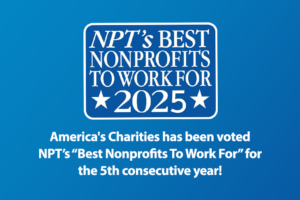Sarah Ford | March 6, 2014
CSR is More Deeply Embedded in Business According to New Research
When it comes to corporate citizenship, above-average industry performers are more likely to have a formal corporate citizenship department, a program led at the executive level, and higher budgets for corporate citizenship and charitable giving.
These are the findings of the Profile of the Practice 2013, a biennial signature research report from the Carroll School of Management Center for Corporate Citizenship at Boston College.
The Profile of the Practice 2013 explores how the environmental, social, and governance (ESG) dimensions of business—corporate citizenship—are managed in today’s business world, and how these practices have evolved since the last report in 2010. It is based on a survey of 231 companies that provided data on their corporate citizenship strategies, operational structures, and business practices.
“Corporate citizenship is managed at higher levels, corporate citizenship leaders are better compensated, and more companies establish both board committees and official budgeted departments to manage their programs,” said Katherine Smith, Executive Director, Boston College Center for Corporate Citizenship. “These are all signs that CSR continues to be more deeply embedded in business as more executives realize that positive environmental, social and governance measures correlate to positive financial performance, improved reputation, and solid risk management.”
Among the reports key findings:
Increased responsibility at the top
Almost 60% of companies have an executive leading corporate citizenship. This is a 74% increase over what was reported in 2010. Close to one-third of corporate citizenship leaders are within one level of the chief executive.
More money budgeted for corporate citizenship
Almost 100% of companies have a corporate citizen- ship budget today, while just 81% reported being budgeted in 2010.
Leaders are more engaged
The chief executive is more involved in developing strategy, setting goals, and communicating corporate citizenship than reported in both 2008 and 2010. More than 25% indicate that their chief executive is highly involved in corporate citizenship program evaluation.
Reputation enhancement is an important business goal
More than 70% of companies cited enhanced reputation among the top three business goals they are trying to achieve through their corporate citizenship efforts. The next most frequently cited goals are improving employee retention (45%), improving employee recruitment (41%), attracting new customers (33%), and improving risk management (22%).
Get Resources and Insights Straight To Your Inbox
Explore More Articles
For Fifth Consecutive Year America’s Charities Named ‘Best Nonprofit To Work For’
Washington, D.C. – April 1, 2025 – America’s Charities, the nonprofit that mobilizes the power of giving as a leading provider of volunteering, workplace giving,…
Read ArticleWorkplace Fundraising + Volunteering Summit (April 2nd and 3rd, 2025)
Join us in attending this virtual summit! The America’s Charities team is joining up with other leading voices in the workplace giving space for a…
Read ArticleThe Time to Act is Now
The results of the 2024 National Assessment of Educational Progress (NAEP) are in, and the findings are, in a word, heartbreaking. This assessment serves as…
Read ArticleGet Resources and Insights Straight To Your Inbox
Receive our monthly/bi-monthly newsletter filled with information about causes, nonprofit impact, and topics important for corporate social responsibility and employee engagement professionals, including disaster response, workplace giving, matching gifts, employee assistance funds, volunteering, scholarship award program management, grantmaking, and other philanthropic initiatives.




